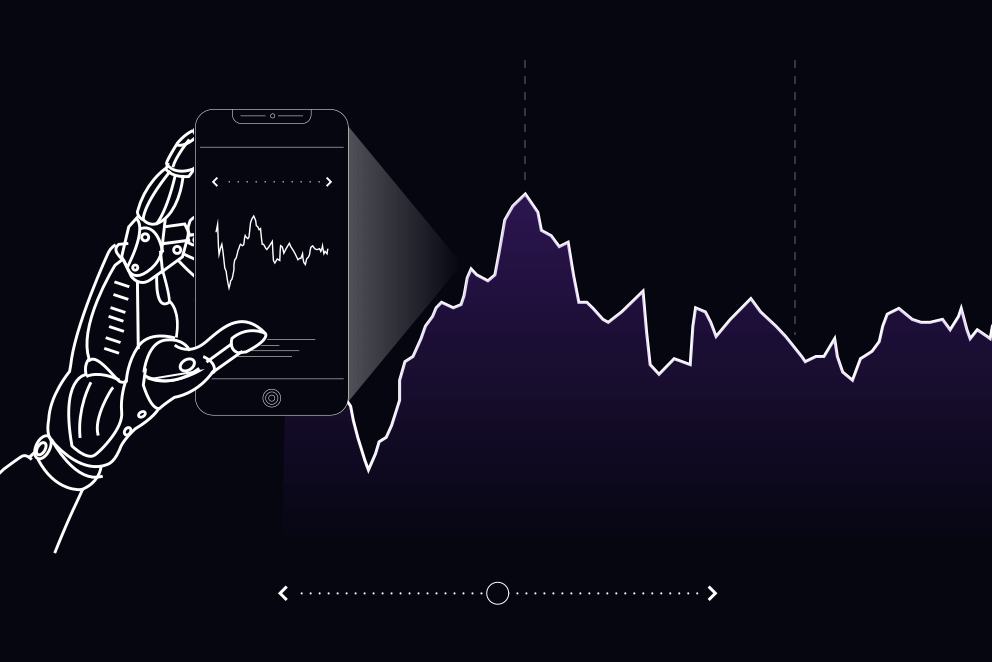Is ‘quantamental’ analysis the future of trading? – Guest Editorial
In this research, IG Group takes a close look at the future of trading, including the potential influence of ‘quantamental’ analysis in the decades to come.

Will Hall-Smith is a senior financial writer for IG Group, a FTSE 250 trading and investments provider. His research and publications cover a range of asset classes, risk management and the effects of politics and economics on markets. Will also has a particular interest in the future of trading technology.
Investment firms typically rely on two main forms of analysis – quantitative and fundamental. The former involves using statistical methods and big data to assess the probability of price movements, while fundamental analysis involves studying factors such as emerging trends or financial statements to assess the potential for growth.
The issue is that both approaches have significant limitations when performed in isolation. Quantitative analysis takes data at face value and can assume that the markets are rational, while fundamental analysis can take too narrow a view and is often subject to behavioural biases.
As a result, traders are increasingly mixing both types to form a ‘quantamental’ assessment.

Quantamental trading explained
Traders using quantamental strategies will only invest in or trade a market if its potential returns are rated highly by both fundamental and quantitative methods. The benefit of such an approach is that they will only expose themselves to risk once they have analysed as much relevant data as possible.
On the quantitative side, AI-powered computers analyse large and diverse datasets. These could include anything from a CEO’s tone of voice on an earnings call to the volume of web traffic – with this information analysed and compared to historical data in seconds.
An assessment of this magnitude wouldn’t be economical – and might not even be possible – with traditional methods, but can help to identify surprising trends.
At the same time, firms using the quantamental approach will continue to benefit from analysis of fundamental factors that can’t be reduced to numbers. This could include human assessment of emerging trends, political uncertainty or the strength of a brand. These intangibles can determine how an asset will perform but cannot always be quantified.
A study of 4000 hedge funds by Aurum showed that quantamental strategies with a fundamental bias achieved average returns of 14.06% in 2019, compared to just 4.46% for quantitative-only strategies and 9.61% for those based purely on fundamentals. Similar findings have been reported by Morgan Stanley, which expects the use of quantamental strategies to expand rapidly over the next decade.
However, it may be some time before we see them consistently achieve ‘alpha’ (gains in excess of market expectations). Last year, for example, a passive fund tracking the S&P 500 would have returned 28.71% – more than double the average for the quantamental strategies that were studied by Aurum.
While the precise timeframe for achieving alpha of this magnitude is unclear, research on the future of trading by IG suggests that the use of big data will be ubiquitous in 50 years’ time, with individual traders getting recommendations from AI advisors.
A further prediction by the CFD trading provider sees smart reports – which are capable of updating themselves in real time – enabling traders to conduct fundamental analysis using live data.

Final thoughts
Quantitative and fundamental strategies have fallen way below alpha in recent years, and firms are increasingly turning to quantamental approaches to gain an advantage.
While it remains to be seen if these will remain competitive in the long run – particularly as they become more widely used – it is likely that we will see automated processes being used to enhance human performance in the decades ahead. Essentia Analytics, for example, is already using automated systems to alert its fund managers when data indicates that they might be overtrading or holding on to losses for too long.
Want to learn more about the future of trading technology? Read IG’s ‘time traveller’s guide to the future of trading’.
IG provides an execution-only service. The information in this article is for informational and educational purposes only and does not constitute (and should not be construed as containing) any form of financial or investment advice or an investment recommendation or an offer of or solicitation to invest or transact in any financial instrument.
Nor does the information take into account the investment objective, financial situation or particular need of any person. Where in doubt, you should seek advice from an independent financial adviser regarding the suitability of your investment, under a separate arrangement, as you deem fit.
No responsibility is accepted by IG for any loss or damage arising in any way (including due to negligence) from anyone acting or refraining from acting as a result of the information. All forms of investment carry risks. Trading in leveraged products such as CFDs carry risks and may not be suitable for everyone. Losses can exceed deposits.
This advertisement has not been reviewed by the Monetary Authority of Singapore.
The subject matter and the content of this article are solely the views of the author. FinanceFeeds does not bear any legal responsibility for the content of this article and they do not reflect the viewpoint of FinanceFeeds or its editorial staff.









